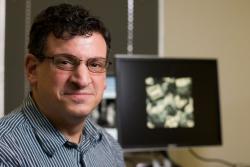Research Update: The Social Network Of Pathological Gambling

What is a “social network analysis” of gambling disorders and responsible gaming? The phrase might evoke images of Mark Zuckerberg in a hooded sweatshirt, or the Oscar-winning film about the creation of Facebook. In reality, a social network analysis (SNA) is a method that researchers use to study how social connections effect behaviors, such as problem or pathological gambling.
“It’s important to realize that this research relates to the naturally occurring social networks that we all have with people we actually know, and not in particular to social technologies like Facebook or Twitter,” said Dr. Adam Goodie, an associate professor at the University of Georgia and director of the Georgia Decisions Lab.
Dr. Goodie and his team recently received a $172,000 grant from the NCRG to study how social connections may impact an individual’s gambling behavior. How do researchers in this field study something as intangible as social connections? “There are two basic approaches,” said Dr. Goodie. “In an ‘egocentric’ type of study, each participant reports on his or her own personalnetwork, and there is no assumption that any two participants know each other.”
The other type is a “sociocentric” analysis, which studies all members of an existing social structure and examines the many relationships and bonds that influence the members’ perspectives and behaviors. The team at University of Georgia will take an “egocentric” approach to learning about the lives and gambling behaviors of nearly 250 frequent gamblers and their 30 closest social connections, a project that will produce information on more than 7,000 people.
Dr. Goodie’s team will evaluate a gambler’s social networks on two major characteristics: “density” and “centrality.” Density is the degree to which members of your network know other members. In this case, the more that people in a network know each other, the “denser” the network. “Centrality” describes the degree to which a person in a given network has connections with others in that same social circle, often becoming a person of influence. (e.g., a spouse who knows almost all of your social contacts would have high centrality).
By using these metrics, the researchers will measure how problematic gambling behavior impacts the relationships of those surrounding the individual who has been diagnosed with pathological gambling. For relatively simple relationships between the gambling behavior of an individual and their peers, the social network analysis may show something completely different than more complex relationships, depending on how close or “dense” the social network of a pathological gambler is when compared with non-gambling situations. The researchers also will be looking at how an individual’s problematic gambling behavior correlates with other potential disorders, such as substance abuse. “We know that problem gamblers tend to have these traits themselves,” said Dr. Goodie, “and we are exploring whether their entire networks might possess these traits to a greater degree than nonproblem gamblers.”
Once Dr. Goodie and his team have more insight into the relationships between social networks and gambling behavior, those findings will allow them to ask additional questions about how these research findings translate to realworld relationships. Though the proposed research hopes to shed light on how social factors contribute to gambling behavior, there is still plenty of research to be done on individual factors such as personality traits and brain chemistry. “As is so often the case in the real world, finding that one factor has a causal role usually doesn’t rule out the possibility that other factors also play roles.” Dr. Goodie said.
This profile of NCRG-funded researcher Dr. Adam Goodie, associate professor at the University of Georgia, was originally published in the summer 2012 edition of Responsible Gaming Quarterly. To read or download a full copy of this issue, you can visit theNCRG website.
NCRG staffResearch Updategambling disordersNCRGresearchresponsible gamingResponsible Gaming Quarterly

